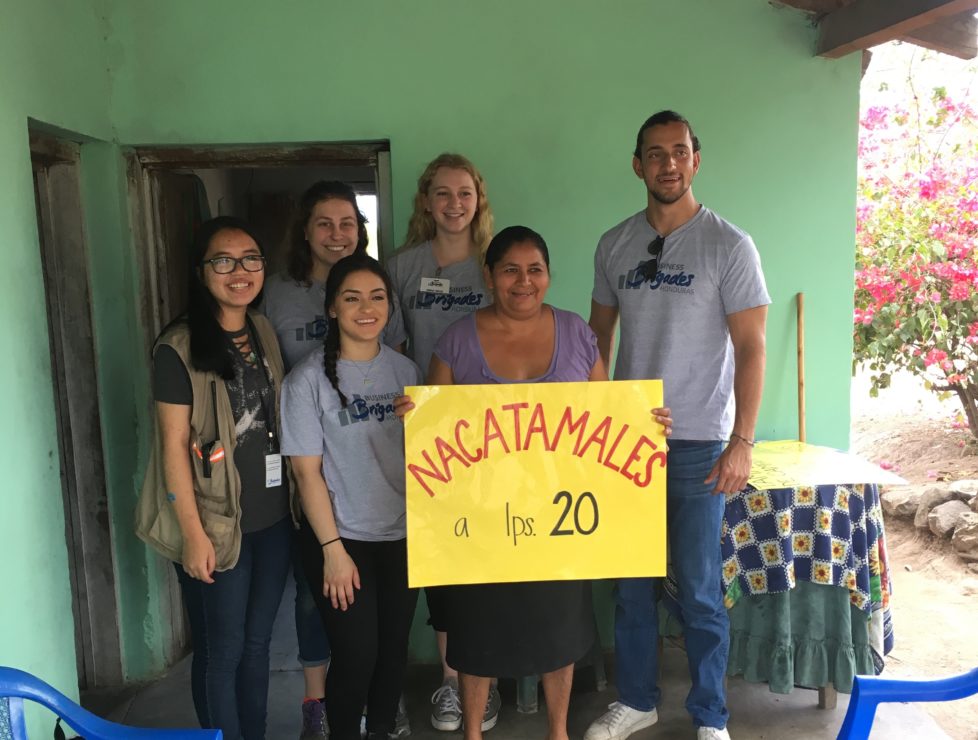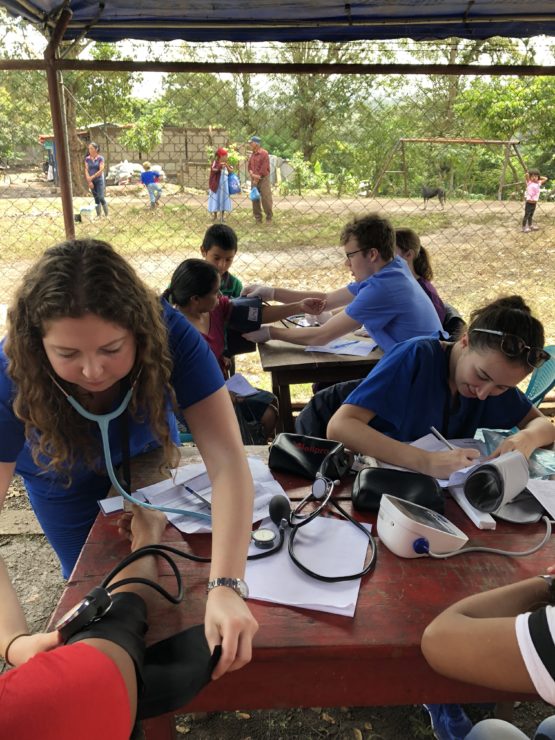This reading break, 50 UVic students will participate in sustainable tourism in Honduras

While other students kick back, relax, and maybe even study over reading break, 50 students involved with UVic’s Global Brigades club will be working on sustainability initiatives in Honduras.
Global Brigades is an international nonprofit organization and registered charity that runs programs in five global south countries: Greece, Panama, Honduras, Nicaragua, and Ghana. Their student trips work with partner organizations and full-time Global Brigades staff in each country under a holistic perspective of community development.
Ashley Larnder, the current president of the UVic Global Brigades club, has been involved for four years. After going on a medical brigade in her first year, Larnder was hooked.
“After I learned about sustainability, and learned about bigger topics of global development, I realized my contribution should actually be for a purpose,” Larnder said.
Founded in September 2007, the UVic club was the first Global Brigades chapter in Canada. They have sent 23 different brigades and 474 volunteers since 2008.
Student brigades assist ongoing projects and support existing needs of the communities they visit. For every brigade, the university chapter and its members are responsible for funding the project and their own involvement. They also continue to fund the Global Brigades projects they participated in throughout the year through fundraising initiatives on campus, once the brigade team returns to Canada.
Students can go on either a business, engineering, or medical brigade. This year, the medical brigade will assist with basic patient care while shadowing licensed practitioners and pharmacists. The engineering brigade plans to help construct and develop a water treatment facility, and the business brigade will assist local entrepreneurs with financial planning and strategic investment.

The cost of a trip is typically around $2 000–2 200 depending on the type of brigade trip and the cost of flights. Throughout the year, the UVic Global Brigades club fundraises on campus to assist students with those costs.
On Larnder’s most recent brigade trip last year, she worked directly with an entrepreneur that sold plantain chips.
“Through consulting with him throughout the week, teaching him financial literacy and a tracking system for his money, which he hadn’t had in place, can help him to grow his business and provide for his family,” Larnder explained. “Through that I understood culture on an entirely new level.”
Before they go on a brigade, the team works to ensure they understand the cultures and experiences of the communities they visit as much as possible. In business, for example, Larnder says the Western idea of profit maximization isn’t always relevant for small communities, where businesses are much more interdependent than in large capitalist societies. The club is continuously discussing how they can be more sustainable and culturally respectful.
“It definitely has changed my life … joining this organization taught me how to critically analyze other organizations and GB itself … they love to hear critique from students so they can become more sustainable,” Larnder said.
When asked if collecting donations might be more cost-effective than sending Canadian students, Larnder explained that it’s difficult for organizations to encourage sustainability through donations because funds can be inconsistent. While the brigades go down for only a week, they bring in skilled students and incorporate knowledge-sharing while starting projects that the broader Global Brigades team (local to each country) and members of that community will continue to work on after the students return to Canada.
“It’s not about giving people things,” Larnder said. “The community is fully engaged in the process so that they can learn … there are all of these things in place to integrate community members throughout the entire approach.”
Interested students can get in touch with UVic Global Brigades via their Facebook page. For the February trip to Honduras this year, students must pay their trip deposit by November 6.






